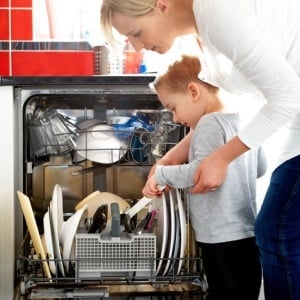
Your dishwasher may get those plates spotless, but it is also probably teeming with bacteria and fungus, a new study suggests.
Microbes – from bacteria to viruses to fungi – are everywhere, including within and on the human body. So it's no surprise, the researchers said, that a kitchen appliance would be hosting them.
Dishwashers an 'extreme' habitat
So do people need to worry about getting sick from their dishwashers? No, said Erica Hartmann, an assistant professor at Northwestern University who was not involved with the study.
The study was published in the journal Applied and Environmental Microbiology.
"The risk is probably in the realm of a shark attack," she said. That is, most people face little to no risk, but there are select groups who may be at higher risk – in this case, people with conditions that weaken their immune defences.
Dishwashers are an interesting case when it comes to microbes because they are actually an "extreme" habitat, Hartmann explained.
"People don't think of them that way. It's just your dishwasher. But it really is an extreme environment," said Hartmann, who studies the microbiology of the indoor environment.
'Opportunistic' pathogens
Dishwashers create constantly fluctuating conditions – wet to dry, high heat to cooler temperatures, low to high acidity. They also harbour mixtures of detergents and dinner scraps. So, only certain microbes will thrive.
The new study looked at which bacteria and fungi are actually dwelling there, and what factors seem to influence that microbial makeup.
Specifically, the European researchers took samples from the rubber seals of 24 household dishwashers.
Overall, they found, the most common bacteria included Pseudomonas, Escherichia and Acinetobacter – all of which have strains that are "opportunistic pathogens". That means they are normally harmless, but can cause infections in people with a compromised immune system.
The most common types of fungus were Candida, Cryptococcus and Rhodotorula – which also include opportunistic pathogens.
A previous Health24 article indicates that washing dishes by hand very often is less effective than machine dishwashing in reducing bacterial content and that hand dishwashing is associated with increased microbial exposure.
Image credit: iStock




 Publications
Publications
 Partners
Partners














